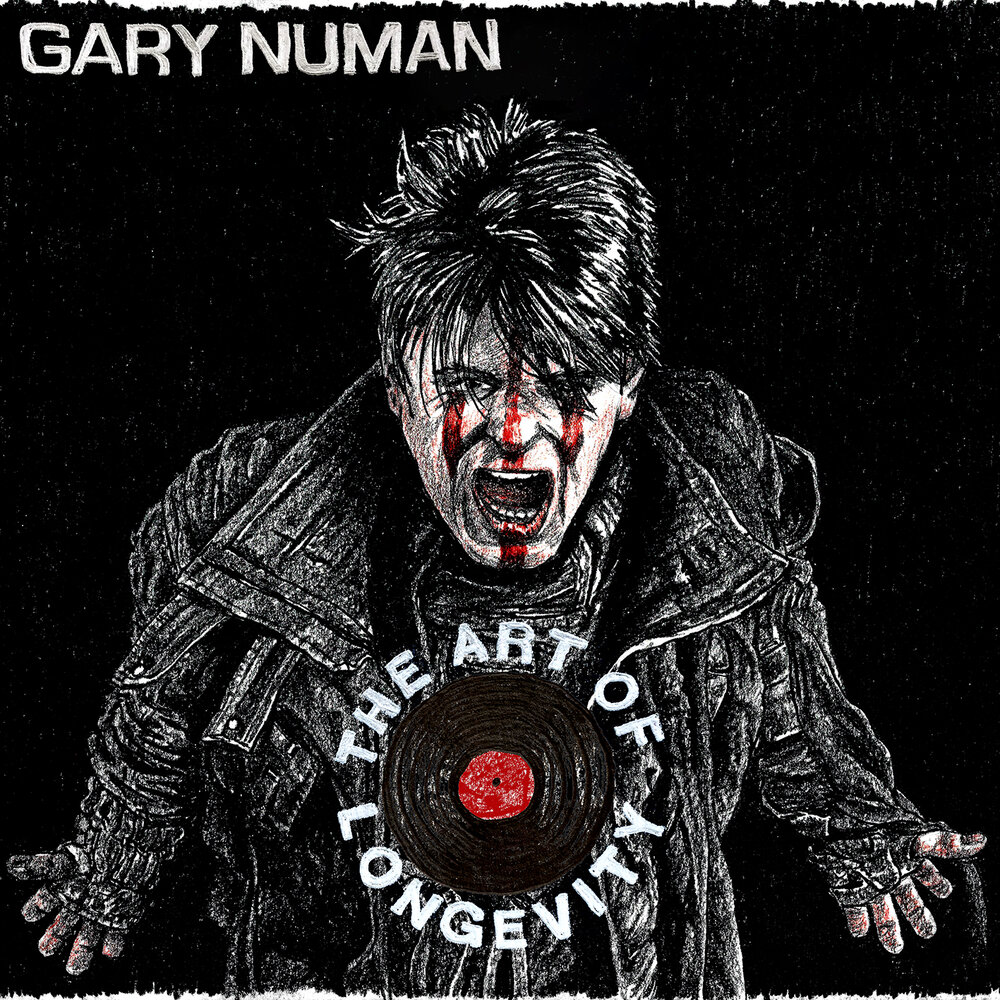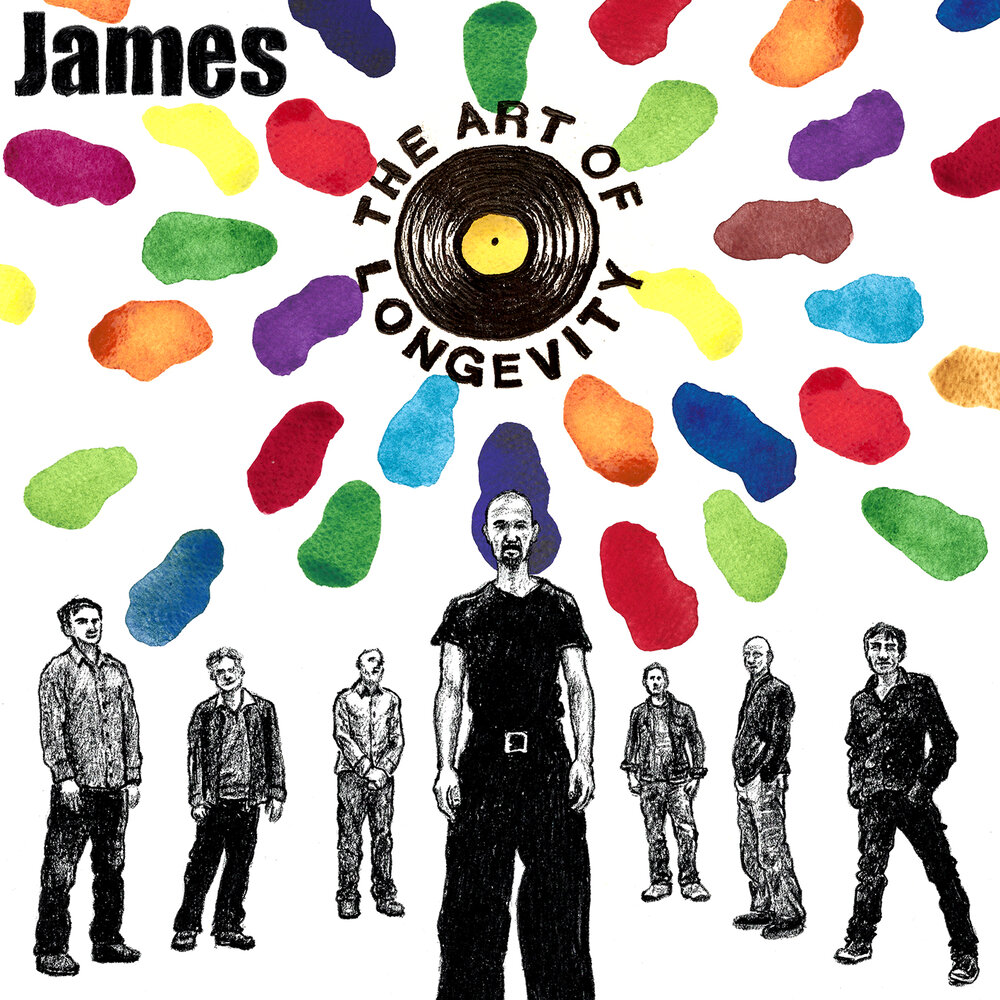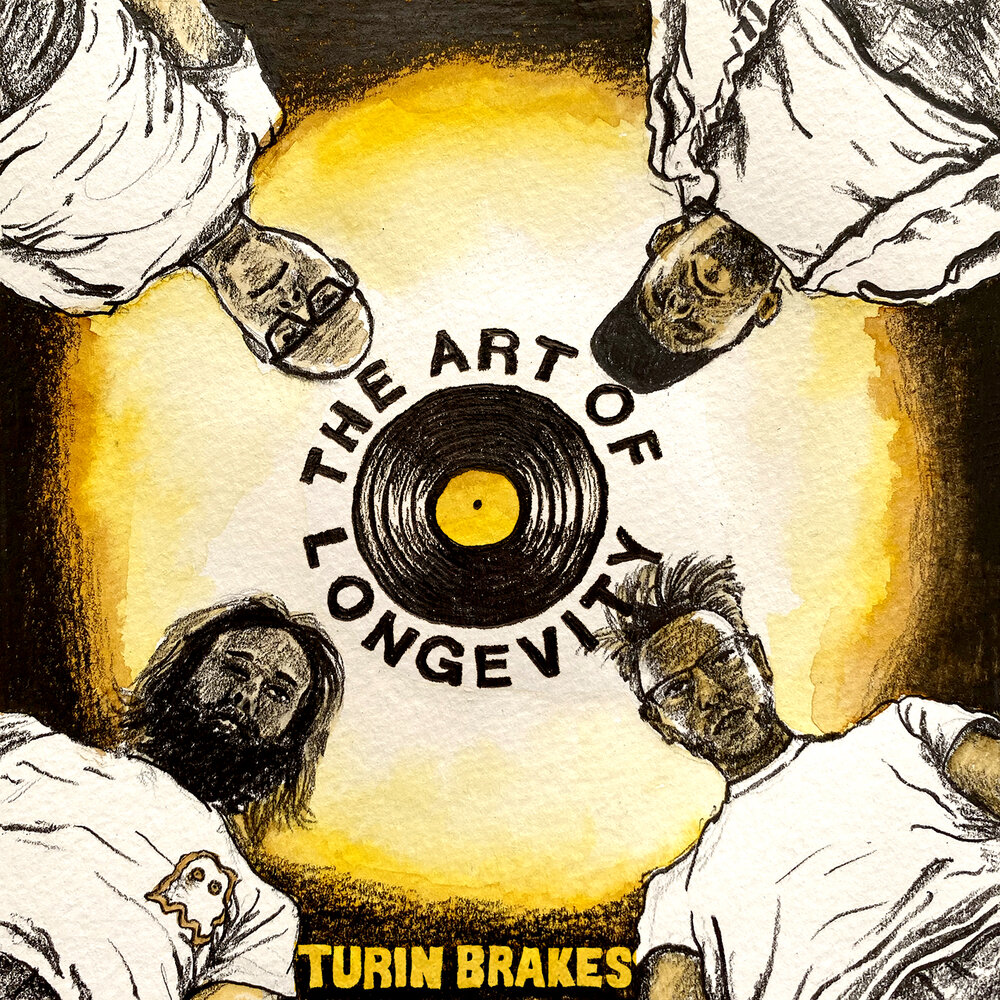7 secrets to longevity in today’s music industry
In this piece, Keith Jopling shares some of the most important takeaways he’s gleaned through the process of interviewing various musicians for his ‘Art of Longevity’ podcast, now in its first season.
Guest post by Keith Jopling of The Song Sommelier
The Art of Longevity podcast is just one season in, but I’m already discovering some of the secrets as to how music artists can survive and even thrive, despite the music industry constantly shifting around them. Whether they’ve lost key band members, been dropped by labels, adapted to the shift to streaming or been blindsided by the pandemic, so many artists have kept going through thick & thin, to come out the other side more fulfilled, creatively and commercially successful than ever.
Of course, looming over everything in the past 18 months has been the pandemic, something that has altered the landscape of the music industry so fundamentally that every artist has reflected on why they choose to do what they do, and how to make sure they can continue both creatively and commercially.
A few years ago, I read an interview with Brett Andersen from Suede, in which he said something along these lines: all successful artists have followed a similar journey, comprising four stages: the struggle, the stratospheric rise, the crash, and then the renaissance.
I’ve always been fascinated by the creative process, especially as it evolves over time. I’m not so interested in the forensics of creativity ‘in the moment’, for example the songwriting process – to me a lot of that is beyond analysis (although Song Exploder does a fine job of dissecting it all). But how bands and artists navigate their way through the mangle of the music industry, with all its ups and downs & swings & roundabouts well, that fascinates me. It takes so much: graft, resilience, collaboration and of course creativity. But it takes confidence too – to take risks, disrupt from within and tap into that third thing – the muse if you will. At times the pressure to bow to the will and wisdom of others (record execs, fans, critics, each other) requires a steely self-belief. It’s not surprising that if you ask the right questions most artists will deeply reflect and draw on some really powerful insights – as well as share some great anecdotes.
I’m inspired to get some of the learnings down after my first seven conversations (my ‘lucky 7’ first guests, after all they are all busy enough to say no, but didn’t): Olly Knights (Turin Brakes), Nile Rodgers, Laura Veirs, Gary Numan, Tim Booth (James), Paul Smith (Maximo Park) and James Skelly (The Coral).
I’m grateful to all of them for entering into the spirit of these conversations. I also had the feeling that for them, it was a nice change not just to talk about their latest record or the height of their fame but to reflect on what’s kept them vital over the years. I will put these first seven themes to the test in season two but I’m also looking forward to building on new themes and discovering much more. I hope these secrets can serve as inspiration to the current crop of up & coming artists and bands currently in the ‘struggle’ phase, or even on the stratospheric rise. After all, it’s good to always be prepared for whatever’s around the bend.
Here are the first seven secrets to longevity:
1 – Make art not entertainment
Singer songwriter Steve Wilson once said that “making music for yourself is art, making it for an audience is entertainment”. Many artists have come a cropper by either trying to write a hit, or, repeat the trick of writing a song similar to one that previously was. This is made harder by the pressure they are often under to do so, applied by record label execs with an obvious bias to hits, since that’s their job. But, resist the temptation and the riches come anyhow, at least sometimes. For Tim Booth of James, the idea of trying to write a hit is anathema, since every James song comes from an improvised jam. But just every so often, one of those songs will sound like it might crossover (hence She’s A Star, Sit Down, Laid and Fred Astaire). Funnily enough, this rule even applies to known hitmakers. There are few such masterful chartbusters as Nile Rodgers (his beat-up 1959 Fender Strat. is even nicknamed ‘The Hitmaker’) yet when Nile took control of David Bowie’s early folk rendition of ‘Let’s Dance’ and turned it into Bowie’s biggest commercial success, the creative result was fantastic, yet also (in Rodgers’ own words) weird. Everyone involved knew Let’s Dance was special, but it sounded like no other song ever to reach the charts.
Gary Numan put his debut single ‘Cars’ together on the bass guitar in a few short minutes. Again, the song is weird, yet couldn’t be a bigger hit if he’d tried. Numan followed Cars with a very successful run of three number one albums but by the late eighties, he had mislaid his artistic vision as he struggled to write the kind of songs he thought people wanted to hear. In the early 90s, though, encouraged by his wife Gemma, and inspired by Depeche Mode’s ‘Songs Of Faith And Devotion’, Numan decided to write the kind of album that he wanted to hear. The result was ‘Sacrifice’, which was an unarguable return to form, a trend he sustained on the subsequent albums ‘Exile’ and ‘Pure’. Gary got his mojo back by working to Steve Wilson’s mantra: make art not entertainment.

2 – Obsess over your references, but meld them into something that is uniquely ‘you’
The Coral is a band revered on the music scene – a real artist’s band. They are very accomplished musicians who first got together at school in the small Wirral town of Hoylake. The band members bonded over their many music icons, from The Beatles and the Small Faces to Acker Bilk and Del Shannon. Listening to a record by the Coral is a dizzying fairground tour of Liverpool’s music hall pop heritage mixed with American West Coast psychedelia and a lot else besides. Sometimes all in one song. Yet it sounds like no other band except The Coral. Music critics have tried to classify the music made by North East England’s Maximo Park for the past two decades, eventually converging on the term ‘art pop’. Yet Paul Smith, the band’s singer and main co-songwriter (with guitarist Duncan Lloyd) describes their music thus as: “Odd but still pop music. Weird but anthemic. Music with a literary influence but also immediate – in some ways primitive – it tries to slap you in the face a little bit, but twangs its way back to being pop. We try to make it accessible, if only to ourselves”. In a world in which there are really no new ideas, it’s fine to beg, steal and borrow, provided that you create something unique from it.
3 – Make music about themes you associate deeply with
Laura Veirs is a native of Colorado and resident of Portland Oregon. Originally a Geology major, Laura is better known as a supreme folk-pop singer songwriter. It’s no surprise that her music is steeped in nature. Her rise to fame came with 2004’s Carbon Glacier, the first of four records themed on the elements. Carbon Glacier was earth, Year of Meteors was sky, Saltbreakers was sea and July Flame was…guess what? Fire. By the time she got around to July Flame, she made her first masterpiece. This happened after she was dropped unceremoniously by her label. Just as well then, that July Flame became her biggest commercial success. Some 20 years after their debut, The Coral has made ‘Coral Island’, a record themed on the romantic ideal of the faded seaside town. The band has had an ongoing obsession with the sea since day one, but Coral Island was different. The band collaborated with artist Edwin Burdis to actually build the island. The band’s singer James Skelly told me he expected the album would linger in obscurity, yet it reached number two on the UK album charts and has received critical praise across the board. It’s probably their best record so far. Meanwhile, ‘Child of the Flatlands’, Maximo Park’s lead single from their new album Nature Always Wins was inspired by a walk Paul Smith took on the North East’s industrial path. The bleak, abandoned beauty of the industrial wastes close to their homeland has inspired one of their best ever songs. Gary Numan’s latest album ‘Intruder’ is based on the concept of the human race under attack from the virus (for the good of the Earth, since we don’t know better). Numan has always made his music from somewhere in the future and after 40 years he hasn’t caught up with himself yet. His belief in the theme and deep concerns for the world come through in a strong and confident new record.

4 – Work to an internal code, pact or system
From day one in 1983 James had a philosophy and pact to always take risks – whether that be creating new songs from jam sessions to walking out on stage in front of the crowd before finalising the set. James’ are driven to experiment, and it’s remarkable that such fully formed songs as ‘Beautiful Beaches’, ‘Sometimes’ and ‘Say Something’ emerged from improvisations. ‘Honour thy error as a hidden intention’ was a card drawn from Brian Eno’s Oblique Strategies deck in one recording session with the band, but James already lived by that particular axiom. Nile Rodgers has a secret recipe for creating those monster hits, but it’s nothing to do with a sound, a snappy intro or a catchy chorus. It doesn’t even involve his funky Hitmaker guitar. It is the DHM, or ‘Deep Hidden Meaning’. It was the DHM that connected Nile deeply with the lyrics to INXS’ breakthrough hit ‘Original Sin’ (which he tweaked to “dream on white boy, dream on black girl” to reflect the story of Beverly and Bobby (his mother and stepfather). For Nile, the DHM is his Oblique Strategies deck. No wonder he describes his job as a ‘problem solver’.
When Turin Brakes found themselves high and dry in the late 2000s: dropped by their label and without an agent or a manager, the band had to regroup somewhere near rock bottom. The climb back up the hill began with a memorable gig at a leafy suburban West London lido. The band’s slow and steady resurrection built from there, working outside the mainstream of the major labels and charts and instead to a model of independence they called ‘The Robbie System’, a tribute to the patient guidance and wisdom of their drummer (and de facto caretaker-manager) Rob Allum. In effect, Turin Brakes got a head start on making their own way as an independent band – a model they are now consulted on occasionally by contemporaries and new bands alike. When they were cast out of the mainstream, they were in fact given a head start on how bands operate in the future.

5 – Remain grateful and humble for the stratospheric rise but know how to come down
Despite their precipitous fall off the charts, Turin Brakes enjoyed their time in the sun. So did The Coral. When the band was elevated to the top of ‘Britpop’ mania in 2002 with their song ‘Dreaming of You’ and their Mercury Prize nominated debut album, they had a great time basking in the limelight and usurping industry etiquette (a Freddie Mercury impersonator stood in for them at the Mercury Prize ceremony). However, The Coral also lost touch with reality. When they released a third album of spooky psychedelic jams, they thought it might get to number one (like their second album ‘Magic and Medicine’). It was perhaps an act of subconscious self-sabotage. James are one of those bands who are known universally for just a few songs from the early 90s, namely ‘Sit Down’ and ‘Laid’. Nile Rodgers of course is in another league when it comes to hits, reigning supreme through the 80s when he literally had the midas touch. All of them owe a debt to those early songs’ success. But they also know that those songs (as good as they are) didn’t get to be hits without the grinding machine of the record industry. Their labels and the music media, helped them reach and grow their initial fanbases. And several decades later, all of them remain grateful to this day that those songs are the reasons they get to write new songs and play them for a living.

6 – See line-up changes as an inevitable part of evolution
Many bands have lost founding members, but in 2008 Bill Ryder-Jones parted ways with the Coral, the band he had formed with school friends. Ryder-Jones had always been a key element to the band’s sound and is a supremely talented guitarist. When in 2008 the band realized their friend and bandmate was not coming back, they soldiered on but adapted their style out of necessity. Their next record ‘Distance Inbetween’ was more primitive in style, with rhythm to the fore. This was out of necessity, since Ryder Jones wasn’t there to play guitar; singer James Skelly played more guitar parts. Eventually the band found new guitarist Paul Molloy, who brought something new entirely with a lower tuning not unlike Black Sabbath’s Tony Iomi. Maximo Park has lost two founding members along the way, yet turned those bittersweet losses into opportunities to explore new sounds and styles. As a core of three, the band has made it’s best ever record in Nature Always Wins.

7 – Get very, very good live
The pandemic has been the missile many artists and bands needed to remind them never to complain again about the tour bus, the support circuit or playing to a half-full club venue in Rotheram or Hicksville USA. Live streaming has been the only way to keep your hand in, but it is not how artists want to perform and it’s no way to make a viable living. Honing your craft live is what a career in music is all about. Yes, there is making albums, but performing those songs is where it’s at. All the bands and artists that even qualify for the ‘longevity’ conversation are very good live acts who have put in their 10,000 hours in rehearsal rooms, festivals and out on the road.
So here are the first seven secrets. Already more themes are coming through – from outside inspirations/pursuits, confidence to be contrarian and how to keep connected with fans. But, before we get into that, I want to do another season. Season one archive for the Art of Longevity Podcast is on The Song Sommelier here.